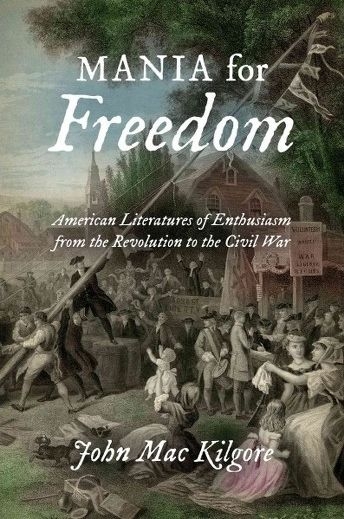Life After UC Davis English PhD - John Mac Kilgore

John Mac Kilgore (PhD Class of 2012)
John Mac has a new book out, so in addition to asking him about life as an English professor at Florida State University, we asked about his Mania For Freedom, published by the University of North Carolina Press.
Congratulations on the book, to start. Could you tell us a little about it?
I show how enthusiasm--as a "fervor for freedom"--operated in political, literary, and cultural rhetoric to support or critique historical movements and moments of emancipation. My unique contribution, however, is to introduce and define an entirely new mode of literature—a literature of enthusiasm. Literatures of enthusiasm are those texts that transform writing into a species or inciter of popular revival and revolt.
What audiences are you trying to reach?
I'm trying to reach scholars who work on early national and nineteenth-century American literature. To be specific, I want people to take seriously a (literary) culture that has not been properly theorized or historicized.
My book is also about emancipatory history, affect theory, and post-secularism, and so my audience also includes people are who interested in histories of dissent and revolution, the politics of emotion, and religion and literature.
What part of the research was most exciting for you?
I wanted to answer a question for myself back in graduate school. On the one hand, I was reading philosophy in which "enthusiasm" emerged as a buzzword, especially in Immanuel Kant's writing on the French Revolution. Kant understands enthusiasm as a category of sublime moral feeling, specifically the spectator's disinterested response to a political event of moral progress. On the other hand, I was also reading early American literature that uses "enthusiasm" in a different (often negative) way--for instance, in Nat Turner's Confessions. Enthusiasm here is closer to the idea of fanaticism, of a religious delusion or prophetic inspiration that leads the slave to commit acts of violence. However, Nat Turner's Rebellion is actually part of the history of black revolution and democratic resistance. How does this all fit together? I began to see a pattern emerging, a pattern that goes all the way back to the English Civil War. I wanted to tell that story. But first I had to figure it out.
Let’s talk briefly about your job at FSU. What are you teaching these days?
I've been teaching a wide variety of courses, never the same thing (by choice). Most are related to what I was hired to teach, pre-1900 American literature, but I have the opportunity here to occasionally teach special topics as well. I'm also one of the faculty members who regularly teaches our introductory theory course. So, for instance, in the fall I taught a grad course on the American Revolution, the Constitution, and the Making of the Early Republic; and our Critical Issues (or theory) class. But right now I'm team teaching a course on Bob Dylan and doing a senior seminar on dystopian literature and film. It's a blast.

